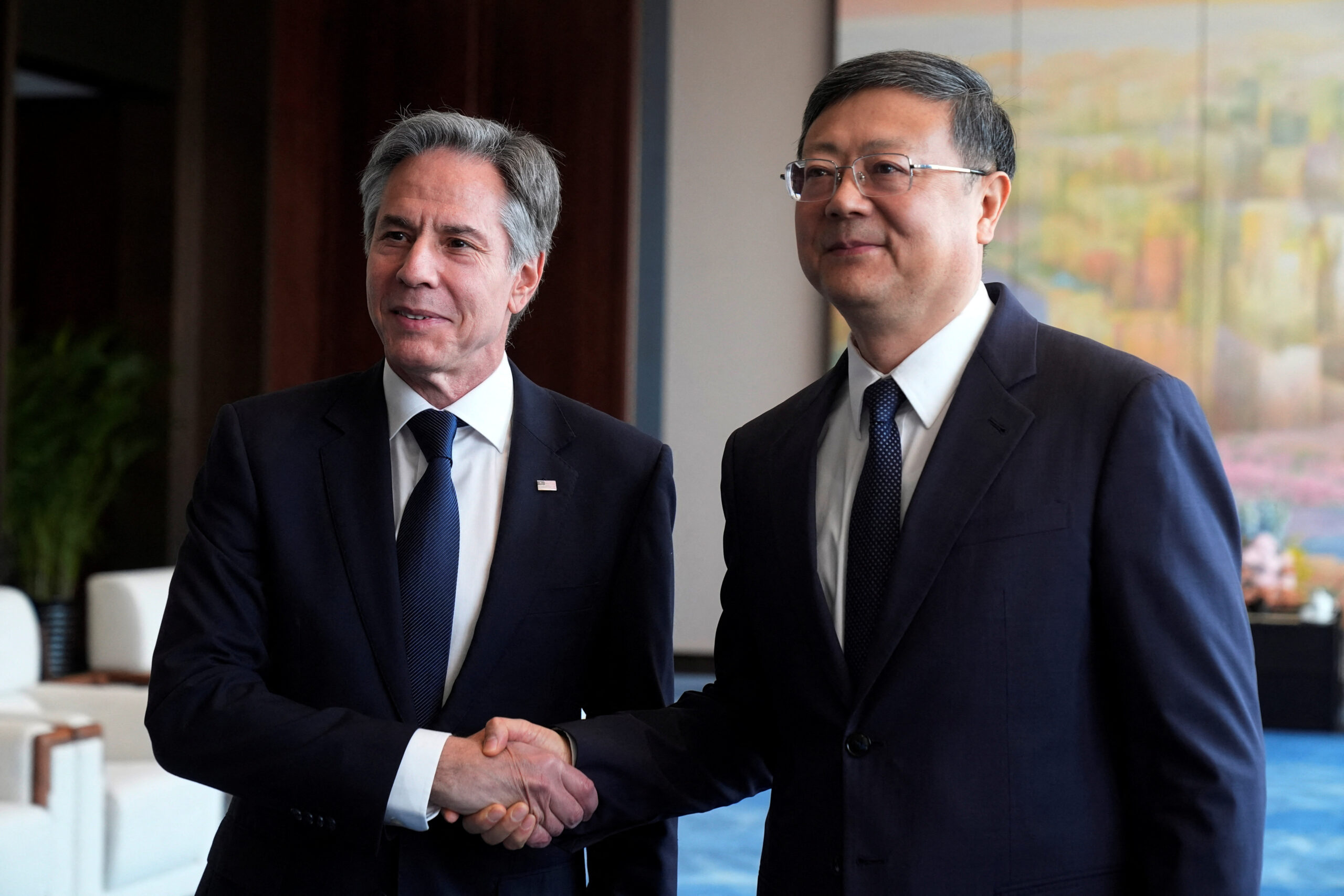
Blinken calls for treating American businesses fairly in China
As he started a tour intended to settle a number of divisive issues that could jeopardize the recently healed relationship, U.S. Secretary of State Antony Blinken on Thursday urged China to offer fair playing fields for American companies.
With working groups addressing everything from international trade to military communication, Blinken’s visit is the most recent high-level engagement between the two countries that has helped to reduce the public hostility that brought relations to all-time lows at the beginning of the year.
However, tensions are also rising over Beijing’s support of Russia in its war in Ukraine, as well as how American businesses operate in China, Chinese exports, and manufacturing capacity.
When Blinken met with China’s top official in Shanghai, Chen Jining, a spokesman for the State Department Matthew Miller said that Blinken expressed concerns about China’s “trade policies and non-market economic practices.”
Blinken additionally “stressed that the United States seeks a healthy economic competition with the PRC and a level playing field for U.S. workers and firms operating in China.”
The official name of the nation is the People’s Republic of China, or PRC.
The Ministry of Foreign Affairs’ spokesperson, Wang Wenbin, addressed the remarks later in the day in a scheduled press conference, stating that “China has always been carrying out economic and trade cooperation in accordance with the principles of the market.”
“We hope that the U.S. side will respect the principle of fair competition, abide by WTO rules and work with China to create favourable conditions for the sound and steady development of China-US economic and trade relations,” Wang added.
In his remarks, Blinken stated that cross-cultural exchanges were “the best way to make sure that we start by hopefully understanding one another” while in Shanghai. He also spoke with corporate executives and Chinese and American students at the local branch of New York University.
On Friday, Blinken will travel to Beijing to hold discussions with President Xi Jinping and Foreign Minister Wang Yi, his counterpart. Those discussions might not go well.
President Joe Biden signed a rare bipartisan bill that includes $8 billion to confront China’s military strength, billions for Taiwan’s defense, and $61 billion for Ukraine’s help just as Blinken touched down in Shanghai.
Along with the aid law, Biden also signed a bill that forbids TikTok from being used in the United States in the event that its Chinese owner, ByteDance, does not sell the well-known short video app within the next nine months to a year.
Blinken intends to exert pressure on China to cease allowing its companies to retool and replenish Russia’s defense industry. Days after Moscow and Beijing agreed to a “no limits” collaboration, Beijing attacked Ukraine. Although China has refrained from arming Russia, U.S. officials have warned that Chinese enterprises are shipping dual-use technology that supports Russia’s war effort.
A senior State Department official told reporters that Washington was ready to “take steps” against Chinese companies it feels are endangering European and American security, but he did not elaborate.
government-run “A huge question mark over what the discussions between Blinken and his hosts can yield” was expressed in an editorial by China Daily, which also claimed that both parties “have been largely talking past each other.”
“On the conflict in Ukraine, the world can see it clearly that the Ukraine issue is not an issue between China and the U.S., and the U.S. side should not turn it into one,” read the statement.
The tensions resulting from the divisions were also emphasized by other state media. According to a commentary published by the state-run Xinhua news agency, “plenty of animosity remains, primarily fuelled by Washington’s adherence to a zero-sum mindset and framing China as a threat.”
All Categories
Recent Posts
Tags
+13162306000
zoneyetu@yahoo.com


